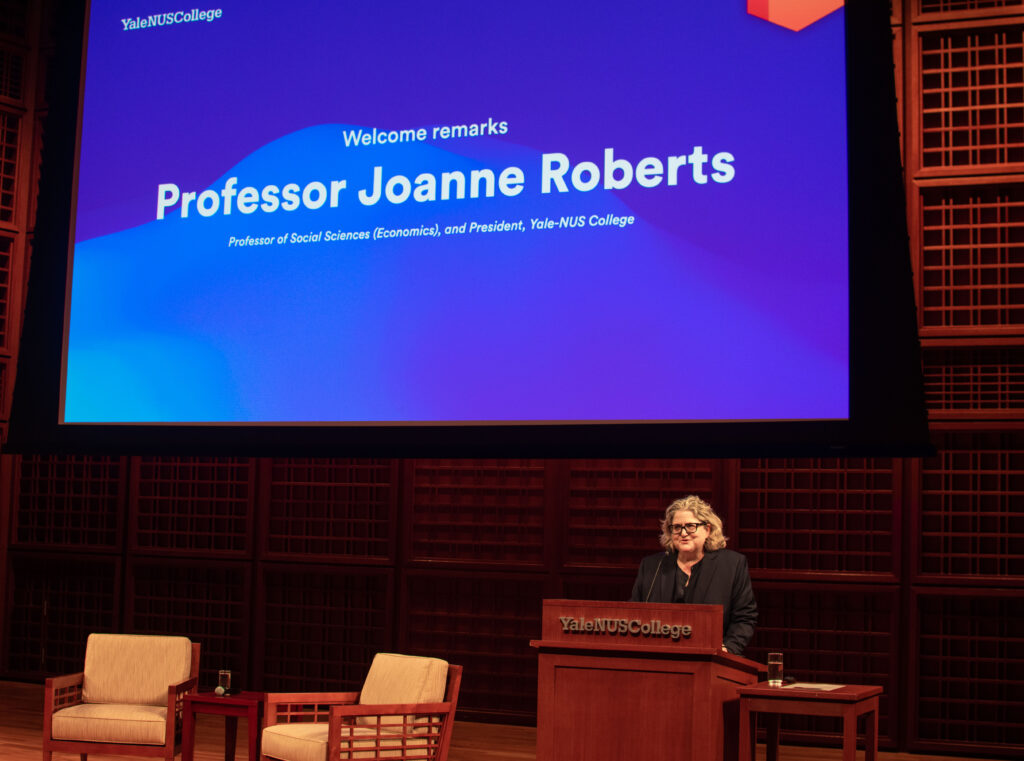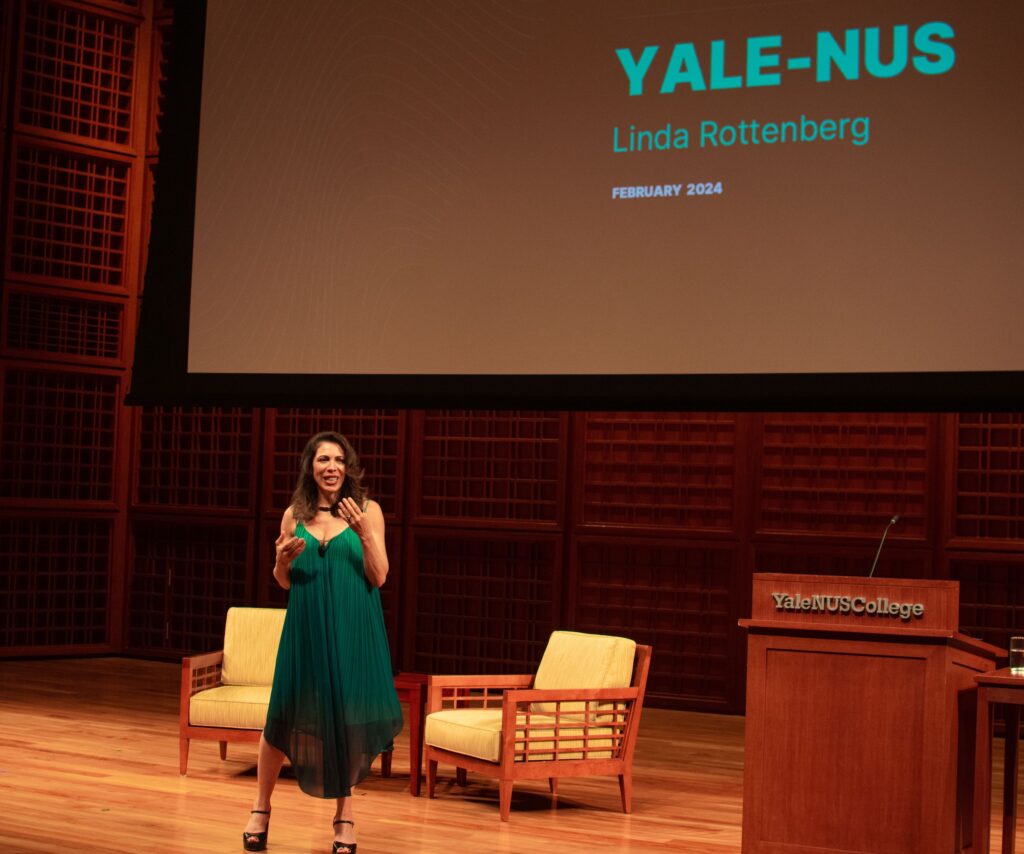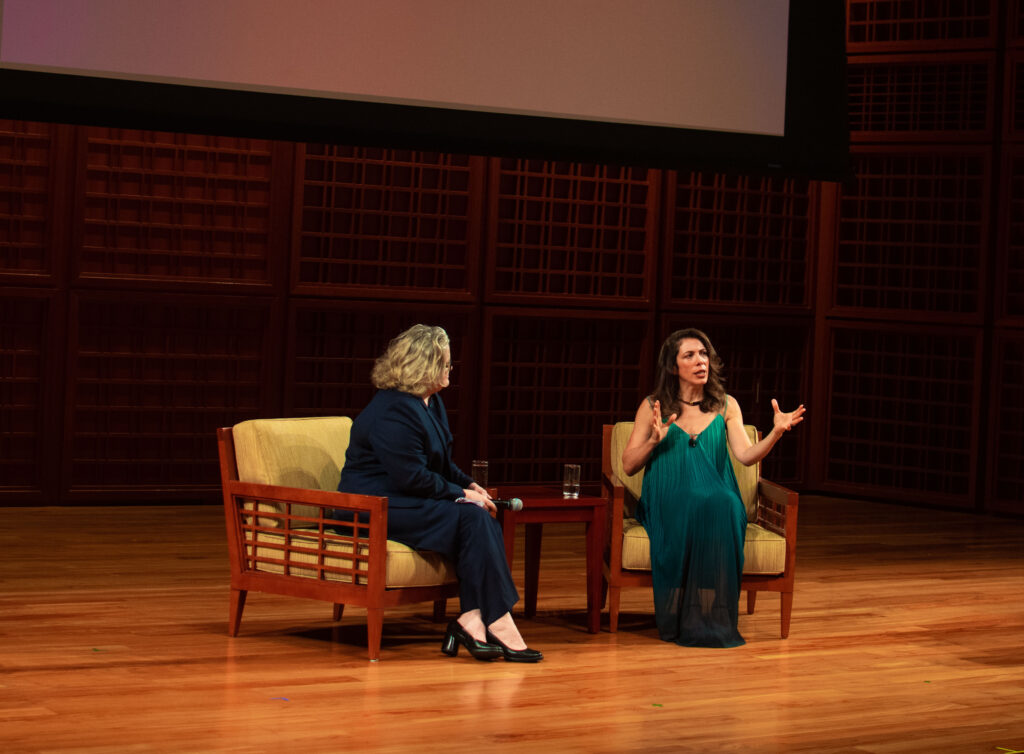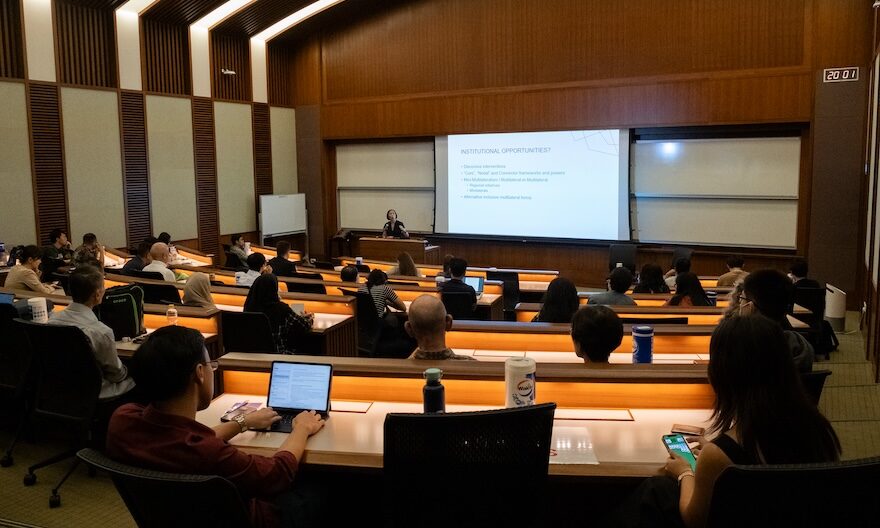Endeavor co-founder & CEO Linda Rottenberg shares her experience building entrepreneurial ecosystems
Find out what makes a start-up more likely to succeed and how an ecosystem of unicorns is built
In the latest iteration of Yale-NUS College’s President’s Speaker Series on 7 February 2024, Endeavor co-founder & CEO Linda Rottenberg shared her experiences in nurturing promising companies into unicorns, defined as being valued at over US$1 billion.
Endeavor is a company that supports and invests in high-growth and high-impact entrepreneurs to transform economies globally. Beyond serving as the President of Endeavor Catalyst (the investment arm of Endeavor), Rottenberg is also Director on public boards and member of various distinguished groups, including the World Economic Forum and Vice Chair of Yale President’s Council on International Affairs.
Moderated by Yale-NUS College President and Professor of Social Sciences (Economics) Joanne Roberts, Rottenberg delved into how her experiences at Harvard College and Yale Law School motivated her to start Endeavor to help entrepreneurs accomplish their dreams and help companies overcome barriers to scaling.

Citing the example of the late Sir Roger Gilbert Bannister, a neurologist and middle-distance athlete who was the first man to run a mile under four minutes, Rottenberg emphasised the importance of having a “mental shift” that embraces the pursuit of what others deem impossible.

She also highlighted two key principles to build a thriving unicorn breeding ecosystem. First, the multiplier effect, where successful start-ups are empowered to re-invest into the ecosystem and generate mutual inspiration in the next generation of start-ups through training and mentorship. Second, she spoke about the different pathways of unicorn founders and dispelled some common myths of successful entrepreneurs, such as being enrolled in an elite school (70 per cent of the founders were from lesser known colleges or are self-taught), studied business (about 60 per cent came from engineering background) and were young (most had over 10 years of work experience).
The lively Q&A session which followed saw Rottenberg fielding questions from the audience. President Roberts began by asking Rottenberg on her perspectives on the prospects for our graduates. Being an optimist, Rottenberg shared that one must look at the opportunities in times of challenge and that entrepreneurs can thrive in any regional market by adapting to the local context, language, regulations, and cultures.

Edward Jeremy Lo (Class of 2024) asked if the multiplier effect still exists for more established or former start-ups like Google. Rottenberg explained that it might exist in a different form as these companies often have networks and training programmes that support entrepreneurship. However, she noted that “there is something different about working in a cash-strapped, fast-growing environment where you go from ten employees to a hundred”.
In response to a question on how women entrepreneurs can balance work and family commitments at various stages of life, Rottenberg shared how she always intentionally talks about her family in her line of work, and that the changes brought by the Covid-19 pandemic, such as a pivot towards hybrid working models and enhanced parental leave, tremendously helps working mothers.
Prior to the talk, Rottenberg also met a group of Yale-NUS College alumni to share her experiences and advice. Her engaging discussions with our Kingfishers fostered a rich exchange of ideas and experiences within the entrepreneurial ecosystem, offering valuable insights for aspiring and current start-ups in the Yale-NUS community.
Watch the full talk here:




